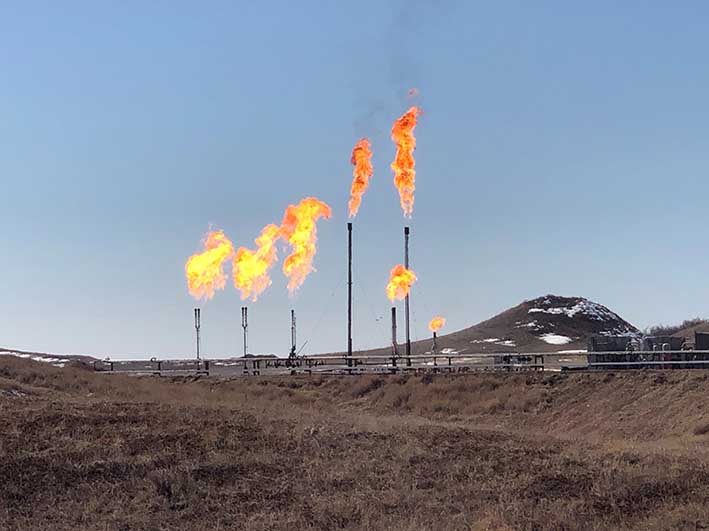Bitcoin miners are increasingly driving their trailers – carrying pipes, generators, and computers – to U.S. oil patches to install what they call “mining rigs.” In contrast to oil drillers, those miners aren’t there for the oil.
Read more of our news content, here: Canada-Belgium-US consortium willing to bid for Petrobras Top Natgas Import Pipeline
In fact, Bitcoin is heavily relying on natural gas to power its operations. Therefore, its miners are using stray natural gas that oil companies don’t want to power the cryptocurrency.
Oil Drillers and Bitcoin Miners Alliances in North America
Currently, there are fewer than ten large-scale Bitcoin mining companies in North America that run on stranded natural gas. There are many cryptocurrency miners in the United States and Canada, usually operating a single well for smaller operations.
In this sense, some major oil companies have signed on with these miners. For instance, in North Dakota, top oil-producing companies such as Equinor and Enerplus Corp are among those firms that have used cryptocurrency mining to reduce flaring.
On the miners’ side, Denver-based Crusoe Energy Systems Inc is a good example. Indeed, it is one of the continent’s most significant Bitcoin mining companies using stranded natural gas.
Besides, Crusoe has about 40 mobile containers in oil shale basins. With the positive results it is obtaining, the company plans on increasing that number to 100.
Remarkably, the company is pushing this decision forward after receiving $128 million in financing last month from investors, including Valor Equity Partners LP and Lowercarbon Capital.
The reasons
One main reason oil and natural gas companies are letting miners access the cheapest ways to obtain the energy they need is the lack of pipelines. Thus, drillers seeking crude oil and have no pipeline infrastructure to get the gas to market are forced to burn it off in a process called flaring.
Besides creating carbon dioxide emissions, flaring is costly considering new environmental regulations and the infrastructure needed to burn that gas.
In this sense, Steve Degenfelder, land manager at Wyoming-based producer Kirkwood Oil and Gas LLC, commented, “The sweet spot for us is stranded, low volumes of gas that don’t justify a pipeline. Moreover, oil and gas companies don’t like to flare their gas – that’s money that’s burning away.”
Pros and Cons
With skepticism, some environmental advocates and investors say cryptocurrencies are not a long-term solution to unwanted natural gas emissions. Notably, because Bitcoin and other cryptocurrency companies produce their own emissions.
Indeed, the global Bitcoin industry produces an overall 60 million tons of CO2 or the equivalent to the emissions of 9 million cars. Therefore, experts like Andrew Logan, senior director of oil and gas at Ceres; say there are better ways to use stranded gas.
For instance, oil and gas companies could sell or even give away stranded gas to power hospitals and schools. However, that would require building pipelines to carry the product out of the oil patch.
On the other hand, proponents and advocates of the new oil-cryptocurrency alliances in North America; consider that it is better to move such mining operations into the region to help reduce Asia’s polluting practices.
In fact, Asia is home to more than 60% of virtual coin operations, mainly relying on coal-powered electricity.


